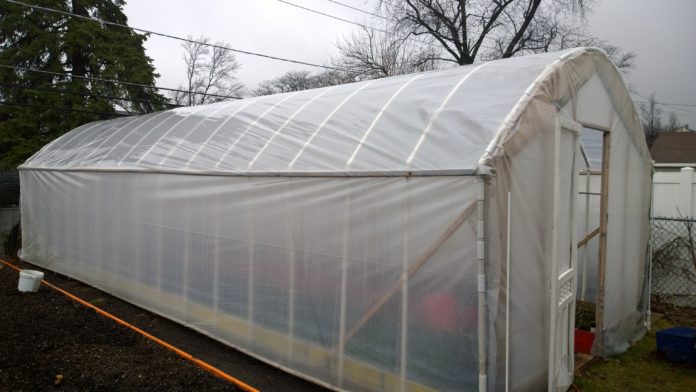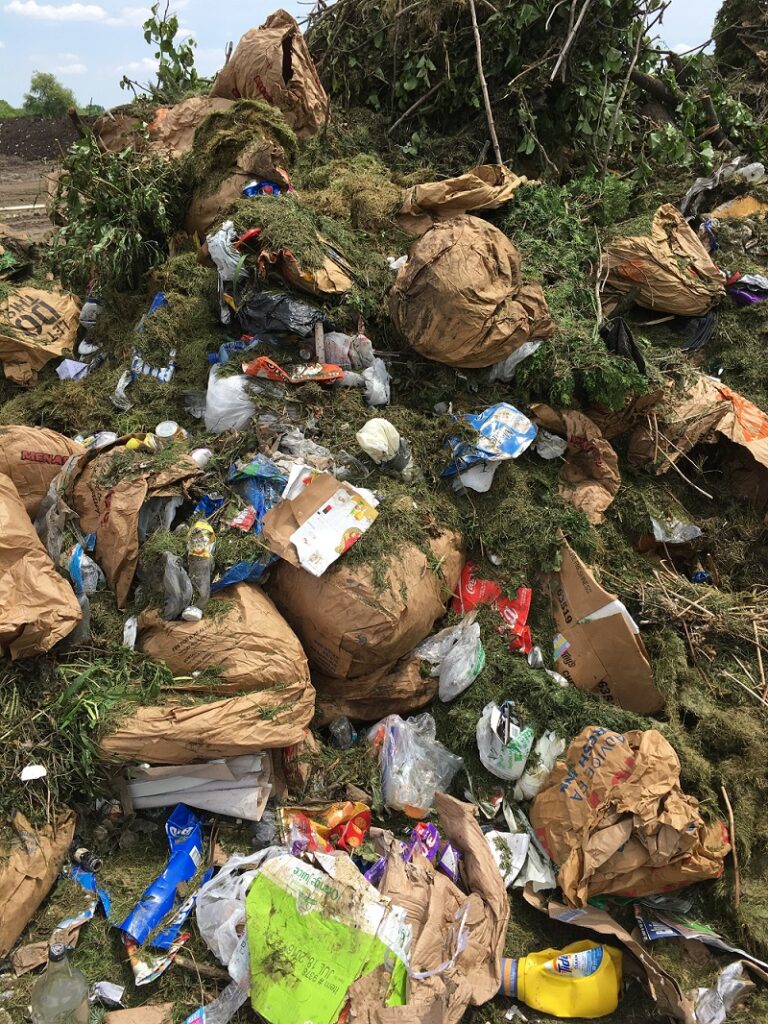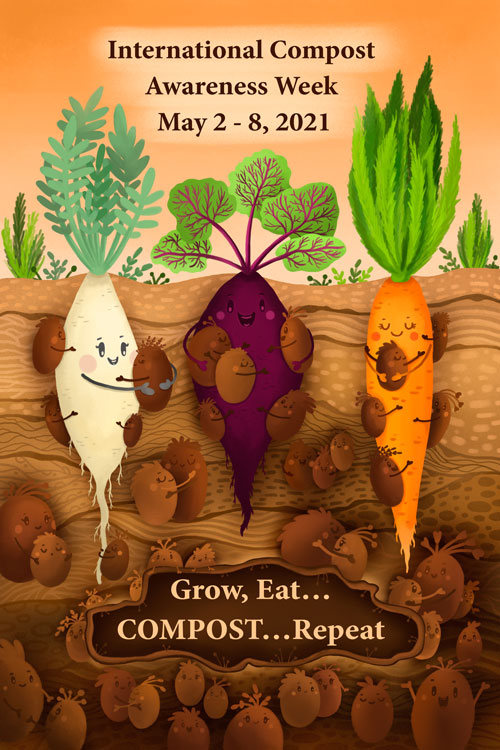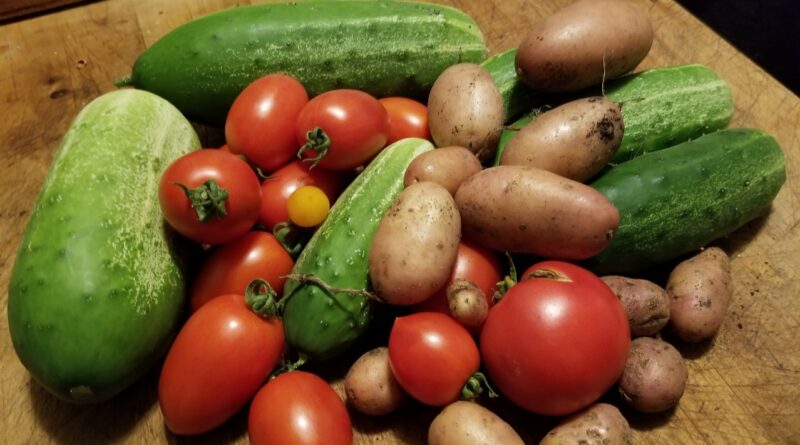Right to Garden Victory in Illinois
Podcast: Play in new window | Download (Duration: 2:06:22 — 59.4MB)
Subscribe: Apple Podcasts | Spotify | Android | iHeartRadio | Podchaser | Email | TuneIn | RSS | More
(May 2, 2021) There was good news out of Springfield, Illinois last week. SB 170 passed the Illinois Senate, 52-4. Two days earlier, it had passed the House 92-24. As you can see, votes weren’t close. It represented a huge victory for Right to Garden forces in the state. The official title of the bill is the Vegetable Garden Protection Act. Those of us following the measure know it as Right to Garden. In essence, that’s what it’s about. The bill is now on its way to Governor J.B. Pritzker’s desk.

Nicole Virgil is the person who made it happen. She first appeared on our show in 2017, two years into a fight with the city of Elmhurst, Illinois. Her family had constructed a hoop house in the backyard to extend their growing season. Sustainability in action, right? But the city told them to take it down because it violated some kind of ordinance about allowed structures. As Virgil wrote, “The City of Elmhurst applied the permanent building code to the Virgil family’s temporary membrane structure to claim it’s illegal, while allowing other membrane structures all over town.”
She joined us again in 2019. The issue had not been resolved. That was after three city council meetings, five development planning meetings and three zoning and planning commission meetings. Getting frustrated with lack of response from her own municipality, Virgil decided that it was time to get serious. She created the Right to Garden website and YouTube channel. And she went to the Illinois General Assembly.
Right to Garden bills
A Right to Garden bill was introduced in 2020 but went nowhere. So Virgil and her supporters tried again this year. Rep. Sonya Harper introduced HB 633 in the House. Sen. David Koehler brought SB 170 to the Senate. The measure would preserve and protect the right of all Illinoisans to “cultivate vegetable gardens on their own property, or on the property of another with the permission of the owner, in any county, municipality, or other political subdivision of this state.” The Act would also protect the right to grow vegetables, as well as “herbs, fruits, flowers, pollinator plants, leafy greens, or other edible plants.”
In early March, Virgil came back to the show to talk about the latest bills. Things looked good in the House but iffy in the Senate. So much for that prognostication. Today, she’s with us again, to discuss how her family’s desire to grow vegetables went from local dispute to state law. Pretty impressive. Today, as in March, Nicole Virgil is joined by Ari Bargil from the Institute for Justice, just one of the supporting groups in this effort. Others are the Illinois Environmental Council, Illinois Stewardship Alliance, DuPage County NAACP, Sustain DuPage, and gardeners across the state.
Grow, eat, compost, repeat
Sounds simple, doesn’t it?
Perhaps it is if you compost in your own backyard. Unfortunately, a lot of composting operations must deal with unnecessary contamination. The Illinois Food Scrap Coalition (IFSC) is the sponsoring organization of the U.S. Composting Council-Illinois Chapter. Those two organizations recently sent out PSA fact sheet that outlines the kind of materials that can be sent to composting operations. They suggest you start with this slogan, “If it grows it goes.” Predictably, grass, leaves, sticks, brush, garden waste, yard debris, shrubs, trees, sod, soil (no clay) and roots are all items which should go in your yard waste bin or kraft paper bags.
Commercial composting lessons
What shouldn’t you include? Anything that doesn’t grow in your yard.

Plastic bottles, Mulch plastic bags, soil plastic bags, pots or trays the plants came in, candy wrappers and snack chip bags, landscape timbers, ANY WOOD other than that that has been removed from a living or recently deceased tree, PLASTIC BAGS of ANY KIND (this includes the dog droppings in grocery bags picked up and disposed of in the yard waste bins), string of any kind (including twine or string wrapped around bales of branches or bales of straw), landscape netting or ground cover netting, and PLEASE under any circumstances NO GLASS or LITHIUM BATTERIES (VAPE PENS, etc.)!!!!
However, the story doesn’t end there. Benjamin Krumstok, who is IFSC Vice Chair, cautions about so-called compostable plastic ware.
If folks are going to use compostable products (bags, plates, forks, etc.) they should at a minimum choose BPI certified (Biodegradable Products Institute) products…Manufacturers submit their products to BPI for certification. BPI sends those products to testing labs to ensure that they comply with ASTM 6400 Standard…An unfortunate reality is that ASTM are lab standards. There is a lot of conversation and work being done to follow-up and work on a system/process/ (certification?) for ensuring that those products which meet ASTM standards actually PERFORM as intended under actual commercial composting conditions (consideration even being given to regional climate differences and different composting technologies).
Food scraps, too
We’re finished, right? Not so fast. The same PSA talking points from above provide another caveat.
Food Waste has different restrictions for each town and you need to go to your individual town, hauler,
or compost site to check out their program. If you question whether an item should be put in the Yard Waste bin or not then it should probably go to the landfill. “When in doubt throw it out.”
International Compost Awareness Week (ICAW)

To some degree, I take issue with the previous statement. But that will be part of the conversation today. Meanwhile, the reason Krumstock joins us this morning is to promote a composting event. Remember the headline, “Grow, eat, compost, repeat”? That’s the theme of International Compost Awareness Week (ICAW) 2021, May 2-8. IFSC presents its own local version with Virtual Lunch & Learn programs each day from May 3-7.
Several organizations sponsor this week of programming. The Illinois Food Scrap Coalition takes the lead. Other partners include the Compost Research and Education Foundation, the Metropolitan Water Reclamation District of Greater Chicago (MWRDGC) and the US Composting Council.
The local ICAW event features a great lineup of presentations.
Monday: Grow
Theresa Johnston, Metropolitan Water Reclamation District
Fred Daniels, Growing Home
Tuesday: Eat
Susan Casey, Seven Generations Ahead
Jenny Futterman, Go Green Highland Park
Bluegrass Restaurant
Something’s Brewing
Wednesday: COMPOST
Jen Nelson, Seven Generations Ahead
Liz Kunkle, Collective Resource Compost
Thursday: Repeat
Doug Bradley, SAVOR…Chicago
Andy Klink, Midwest Organics Recycling
Friday: Ask the Experts
Ginny Black, United States Composting Council
Dr. Paul Walker, Illinois State University
Erlene Howard, Collective Resource Compost
Charlie Murphy, Midwest Compost
Finally, Mike Dimucci owns, operates and manages Garden Prairie Organics and Garden Prairie Nursery. It’s located in (surprise!) Garden Prairie, Illinois. Speaking of surprises, Mike says that some batches of “compostable materials” come with real surprises. His business, by the way, does not accept food scraps. We’ll ask him about that business decision today. He joins Benjamin Krumstock on the show.


